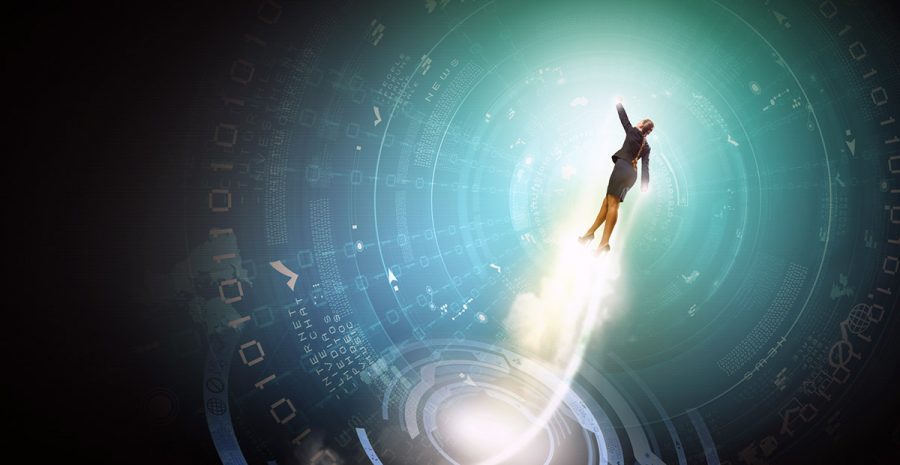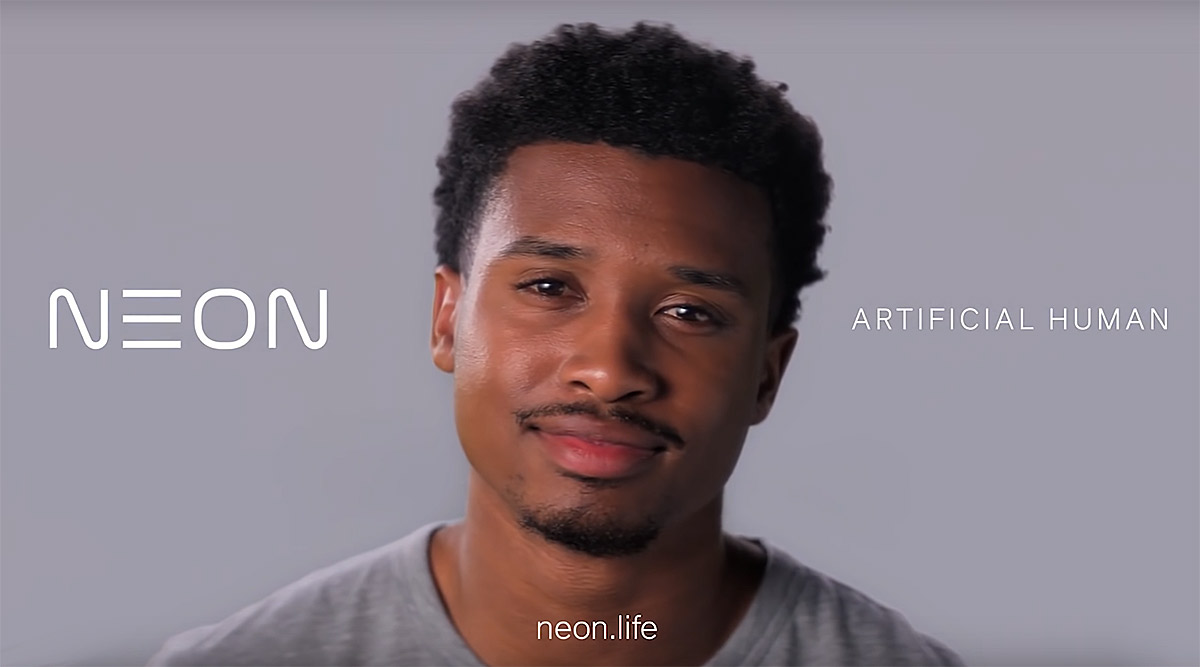SYNTHETIC HUMANS. Elon Musk says humans can’t beat artificial intelligence (AI) and very soon AI will be superior to human intelligence. We will become trivials. Therefore Musk believes we need to join the machines by becoming chipped and transhuman. The researcher James Lyons-Weiler questions this approach. Are synthetic humans really good for human biological evolution?
Interview by Aga Wilson, Free Voice at NewsVoice | Text by Torbjorn Sassersson
Topics
- Biotransformative Technologies – Is Elon Musk right about merging with AI?
- Why do SARS-CoV-2 proteins make double exposure more risky?
- What is the expected outcome of the Covid-19 pandemic?
Elon Musk already has a company called Neuralink that develops technology that can merge the human brain with a supercomputer via an interface. Neuralink has already produced a prototype chip implanted in a monkey’s brain that can make the monkey play video games using only intentional thinking.
The company proudly presents Pager a macaque with two Neuralink chips implanted in the brain. In the future, we could even download information directly from a supercomputer.
Transhumanism goes hand in hand with genetic manipulation
One possibility is, Weiler says, an eternal consciousness could be created that we can relate to, and when doing so we may not be able to tell if information comes from our own mind or this external power. That outer entity could do the thinking for us.
Weiler also touches upon the risk of altering our DNA and genome and that it may be tempting for people to ask for alterations in order to improve intelligence, performance, and beauty.
Weiler then says that both the AI and the genetic modification progress has brought us to a place where it is difficult to contemplate moral issues and where all this is going to bring pertaining to organic evolution for the people who either adapt to or not with these technologies.
[email-subscribers-form id=”3″]

Natural organic humans vs future synthetic humans
Last week James Lyons-Weiler had his latest paper published entitled ”Who are we, and Who (or What) Do We Want to Become? An Evolutionary Perspective on Biotransformative Technologies” in the journal Biological Theory.
In his paper, he focuses on what is called cognitive plasticity and how it will be affected if humans merge with digital technologies to become synthetic humans. So far there are much more questions than answers. The research and his paper are open source.
In order to sauce out what the future may be Weiler constructed a model consisting of two distinguishable types of future humans, the organic humans, and the synthetics humans. The first type refuses to hook up to biologically foreign technologies whereas the synthetic type wants to adopt.
In this model, which probably is dependent on wealth, synthetic humans could develop certain capabilities at a rate three times faster than organic humans. He says that since meaningful biological mutations are so few and come too slow, biotransformative technologies will easily overtake the overall development of synthetic humans at an exponential rate.
At the same time, if the development in the future turns successful, we might see social pressure being performed on parents that refuse to hook up their kids via implants to supercomputers and the global brain. They may be deemed bad, in the same way as parents refusing to vaccinate their kids today are perceived as bad parents.
These technologies should not be brought upon humanity without our full consent
In the interview below Elon Musk talks about the dangerous path that AI is heading towards and how it will affect us. This is only the beginning, the intelligence boom of AI is expanding quickly, writes Anonymous, and we may be very close to making a very important decision about AI. Musk says everyone should be prepared.
https://www.youtube.com/watch?v=_ZgOAwpQDVM
As Elon Musk suggests James Lyons-Weiler also warns us that the implications are very hard to handle if we let loose these biotransformative technologies within the human population, especially since we already have seen examples of artificial intelligence that in certain cases spontaneously have been seen writing new codes and algorithms all by itself!
Transcending transhuman AI
Aga Wilson asks where the people come in the equation for all this and James Lyons-Weiler says that his paper was written on the behalf of humanity, adding these technologies should not be brought upon humanity without our full consent.
”The evolutionary landscape upon which we were born is the most basic and universal of all common rights, upon which all our descendants, modified and augmented or not, must and are entitled to live free from manipulation of recently emerged Homo sapiens who do not even yet know how to run pluralistic societies without violence.
We have a collective right and responsibility to take an extremely cautious approach toward modifying the adaptive landscape upon which we all, and our progeny, as a species have no choice but to continue to collectively evolve.” – Lyons-Weiler
In the interview, Lyons-Weiler says: unfortunately there are no ”right hands” to put the biotransformative technologies into. There are no individuals nor groups that can handle this since it is too powerful. Yet, the research in these fields (human-AI interfaces and genetic manipulation) is in full swing.
The futuristic movie ”Her” starring Joaquin Phoenix as the main character, a computerized AI woman named Samantha (voice by Scarlett Johansson) simulates a complete human spiritual development as she merges with an indefinable space beyond all the computers on the global internet and therefore loses interest in the organic human destiny. Maybe this finally and in the end will save humanity from superior AI, ubiquitous computing, the Internet of Things, and robots (editor’s note).
This text only covers the 30 first minutes of the 60 minutes long interview. Please, feel free to watch the complete video. This text does not cover the subjects:
- Why do SARS-CoV-2 proteins make double exposure riskier?
- What is the expected outcome of the Covid-19 pandemic?
Text by Torbjorn Sassersson | Interview by Aga Wilson, Free Voice at NewsVoice
Dr. James Lyons-Weiler, aka ”Dr. Jack”, is a biomedical research scientist who helped create the field of bioinformatics.
With expertise in genomics, proteomics, and clinical and translational research, he has over 58 peer-reviewed publications on topics ranging from lung
cancer to the effect of the adoption of artificial intelligence on human evolution.
Founder and CEO of IPAK, a biomedical research institute, and Chancellor of IPAK-EDU, his life goals are to reduce human pain and suffering through knowledge and to empower the public through knowledge.
His current research includes causes of autoimmunity due to exposure to SARS-CoV-2 proteins in humans, as well as the effects of aluminum injection on whole-body aluminum toxicity and further analysis of the long-term effects on human health. Founder of the school of thought known as Popular Rationalism, he is currently Editor-in-Chief of the high-impact journal ”Science, Public Health Policy & the Law”
We acknowledge that by participating in the interview, Dr Jack is allowing News Voice to use and distribute his name, images, spoken words, biographical information. News Voice will not be held liable for any damages that might result from sharing of the video interview.
Ipak-edu.org
Ipaknowledge.org
Popularrationalism.substack.com
Jameslyonsweiler.com
Twitter.com/lifebiomedguru
Related
- Greg Braden on Elon Musk: Brian Rose from London Real interviews Gregg Braden an American best-selling author, well-renowned speaker, and thinker.
- Samsung’s NEON Revealed – Leaked Trailer Looks Perfectly Human
- Duck Duck Go on: synthetic humans





